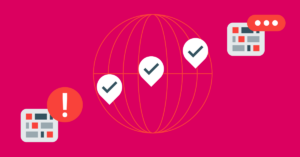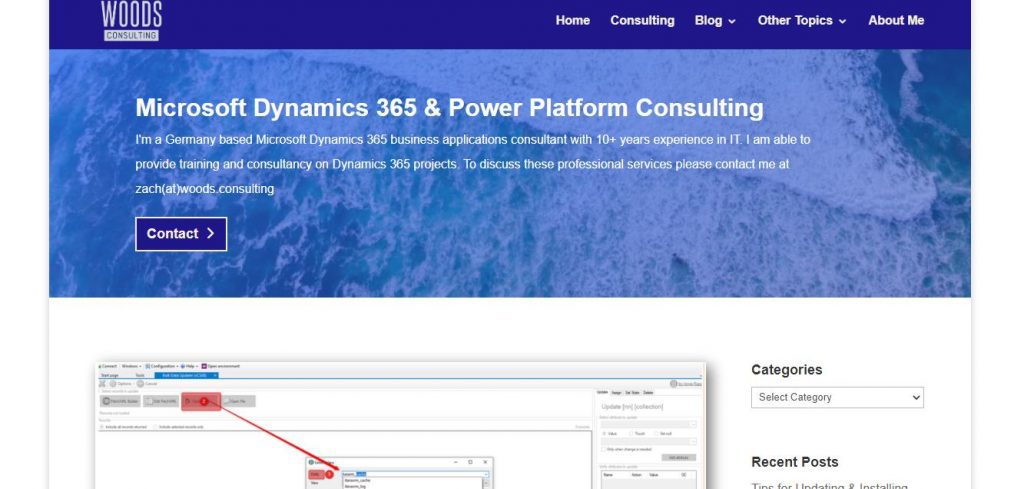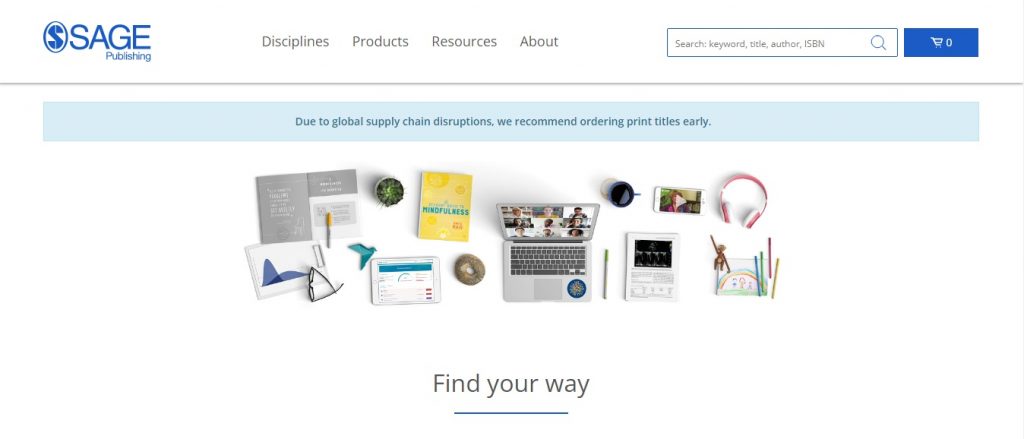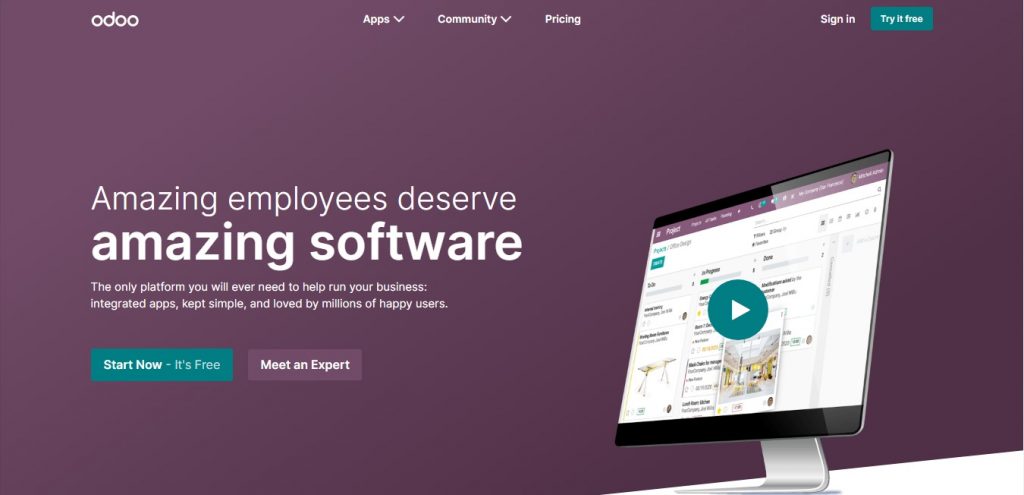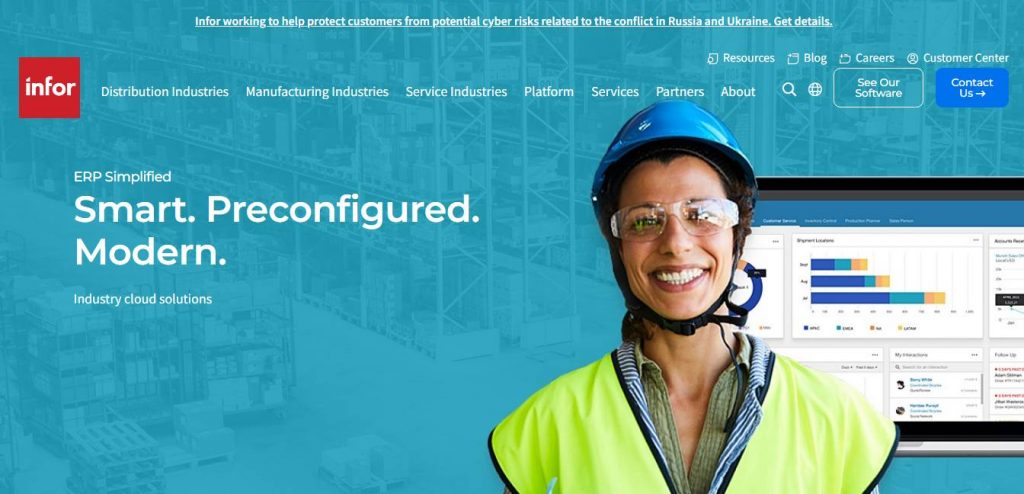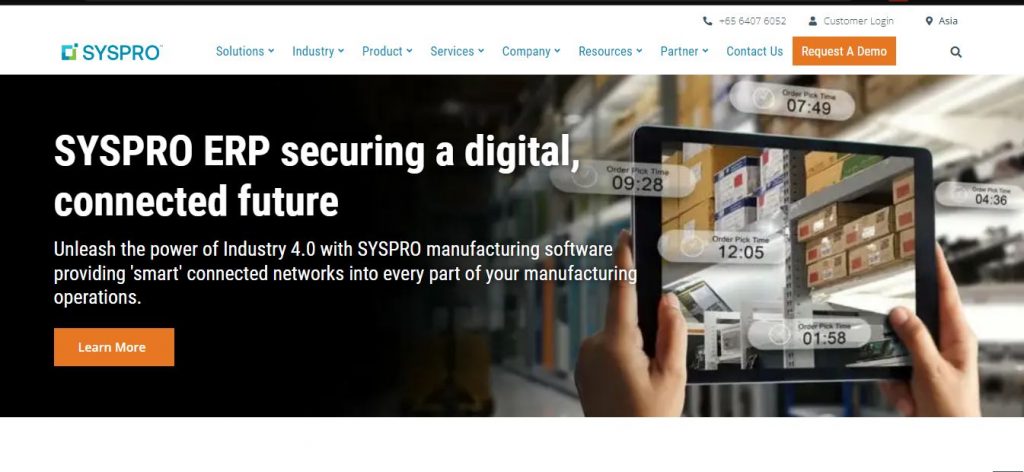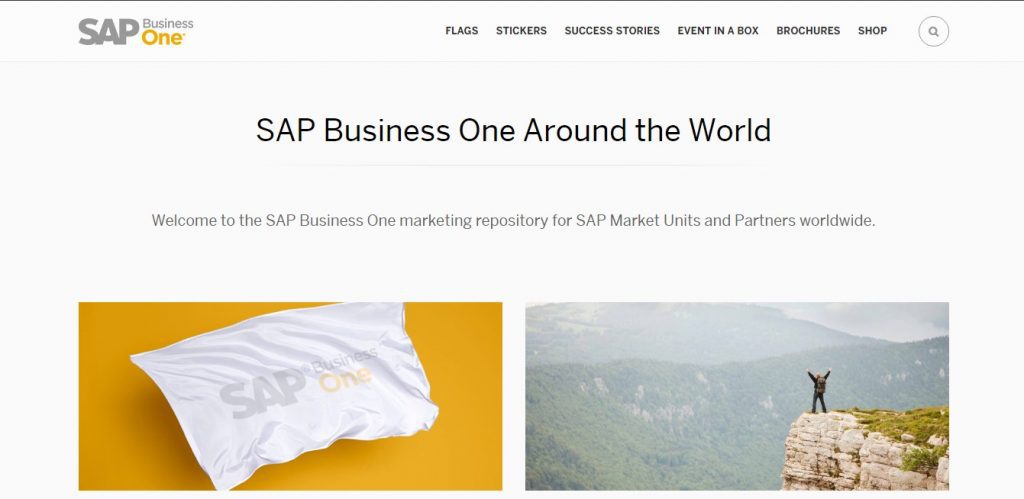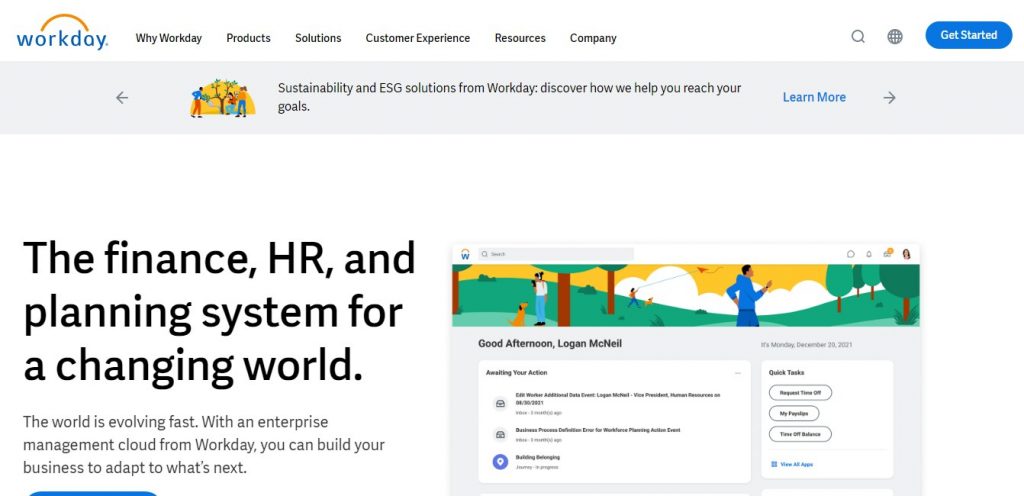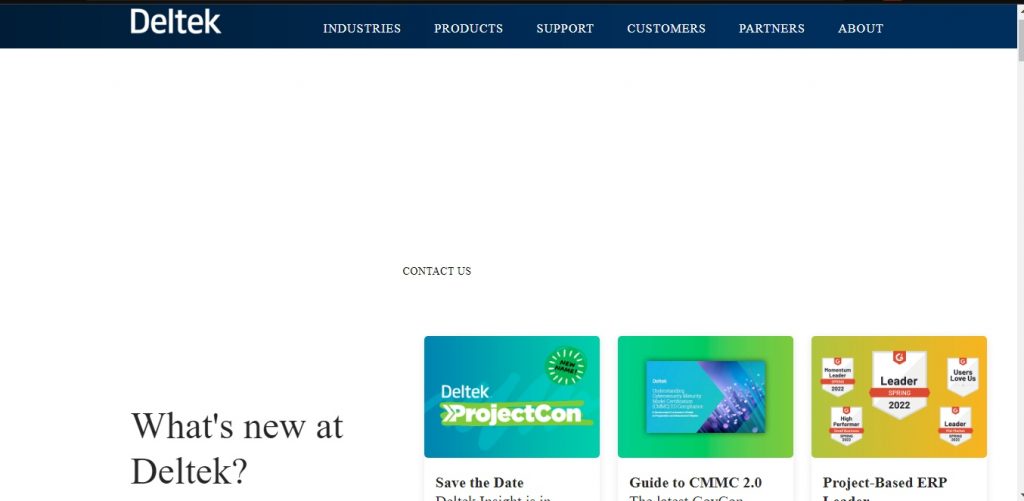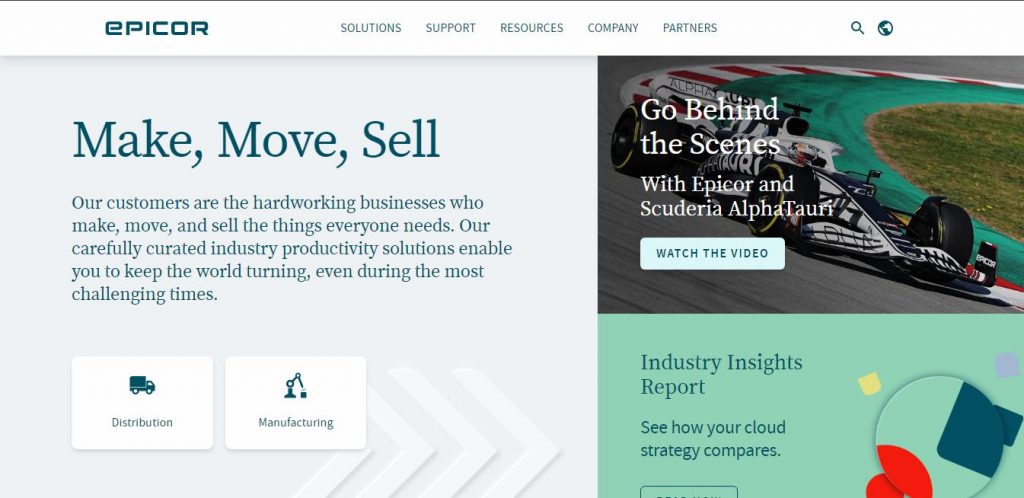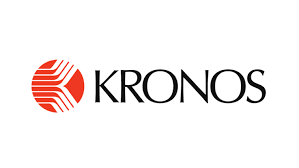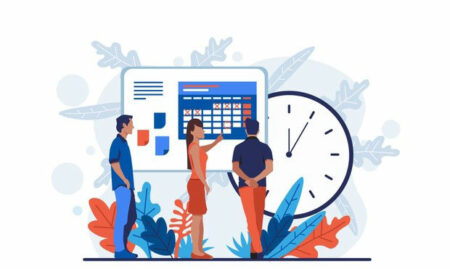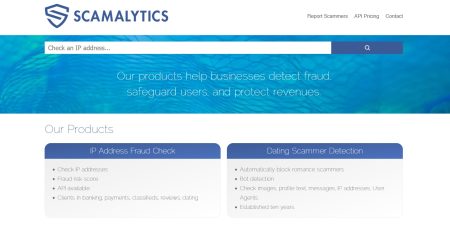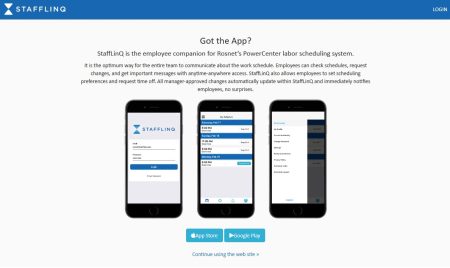Best and authentic ERP Software will be described in this post. ERP is a software solution that integrates & automates important business activities like finance and accounting, manufacturing, supply chain management, project management, human resources, procurement, customer relationship management (CRM), and others. The purpose of deploying an ERP system is to simplify corporate processes by utilising a single software solution.
Many ERP systems are tailored to the requirements of specific industries or business types. Some ERP systems are tailored to certain industries, such as manufacturing or retail, while others are more generic and may be used by a variety of companies.
Top11 Best ERP Software in 2022
Top 11 Best ERP Software are explained here.
By eliminating inefficiencies and enhancing the flow of information throughout your organisation, the best ERP software can help your firm become more efficient. We’ve got you covered if you’re looking for an ERP system for your company but don’t know where to start.
The following is a list of the best ERP software suppliers available today:
Introduction to ERP Software
ERP stands for Enterprise Resource Planning, and it is a software system that is used to manage a company’s entire operations. An Enterprise Resource Management (ERM) system is another name for it.
The ERP software industry is vast, with numerous vendors offering products in a variety of areas and segments. MRP (Manufacturing Resource Planning) systems evolved into ERP systems in the early 1990s.
Early ERP systems were primarily focused on manufacturing processes, but today’s ERP systems cover all aspects of a company’s operations, including sales, services, HR, finance, and so on. The basic goal of ERP software is to bring all of the company’s departments together into a single system.
This will allow management to see all aspects of the organisation through a single interface and delve down into the details if necessary. Instead of having separate data warehouses for each department or project, ERP software acts as a central repository for all corporate information, allowing managers to query it at any time for real-time information about everything in their organisation.
This also makes it more leisurely to add additional features in the future, as well as new departments or other organisations that your system must handle.
Which ERP Software Is the Best?
“What is the best ERP system?” is a common question when implementing ERP software. Because ERP is such a vast subject, there are a plethora of ERP systems on the market. Manufacturing ERP, project management ERP, & retail ERP are examples of industry-specific applications.
The finest enterprise resource planning (ERP) software for a business is determined by its unique requirements and objectives. Some businesses emphasise integration with their accounting software or supply chain management system, while others favour human resources or customer relationship management modules.
You’ve come to the right place if you’re looking for a starting point to figure out what type of ERP system is best for your company. We’ve accumulated data on over 60 different ERPs based on 17 criteria that are crucial in determining which programme is best for your company. Our goal is to provide you with a broad overview of what’s available and to assist you in narrowing down your options.
1.Oracle NetSuite
The world is rapidly changing. Customers nowadays are more informed, demanding, and dissatisfied than ever before.
It’s no lengthier enough to be good at what you do if you want to win their business. You must be exceptional at what you do and be able to demonstrate it. How can you compete with that knowledge? How can you outperform the competition in terms of both quality and price? How do you get the best customers and keep them? Oracle NetSuite ERP, the premier cloud ERP system, is the answer.
Oracle NetSuite provides your business with everything it requires to acquire the best consumers, keep them satisfied, and provide superior customer service than anyone else in your sector. It interacts with other solutions to make all of your data available in one place – wherever and whenever you need it — providing you with a single source of truth for your client relationships.
And it’s all supplied via the internet via a secure online platform that can be accessed from any device, allowing everyone who need access to stay connected no concern where they are or when they ought it.
Features
NetSuite is an Oracle product, is one of the most widely used cloud ERP platforms in the world. It has been on the demand since 1998 and is currently used by over 40,000 businesses throughout the world.
Financial management, commerce, customer relationship management, e-commerce, professional services automation (PSA), inventory management, supply chain management (SCM), project management, and reporting are just a few of the features included in NetSuite.
Industry-specific solutions, such as manufacturing and discrete items, wholesale distribution, and services resource planning, are also available through NetSuite. The platform is intended for medium and big businesses.
The following are some of the characteristics of NetSuite:
Management of finances. This module allows you to organise your financial data in real time so that you can see a clear picture of your company’s success at any time.
You can handle revenue recognition, allocations, and intercompany transactions with NetSuite’s accounting tools. It also aids in financial closing, billing, and invoicing procedures.
Management of customer relationships (CRM). This module aids in the automation of marketing tasks such as lead monitoring and campaign management.
When you’re preparing your next campaign, you may use the CRM tool’s built-in search engine to identify relevant customers. It also supports a variety of sales formats, including B2C (business-to-consumer) and B2B (business-to-business).
Oracle NetSuite. Pros Oracle NetSuite is a cloud-based ERP solution founded in 1998. It is now an Oracle corporation, which gives it a number of benefits: Oracle has a global footprint, which means that you can get local assistance no matter where you are. Also check help desk software
NetSuite’s elasticity means it can be scaled up or down to meet your business’s needs. Multi-tenant architecture: Because the core platform is hosted in their data centres, it is immediately and at no additional cost upgraded for all customers.
Oracle has a earmarked global team that monitors the platform 24 hours a day, seven days a week. Increased value of proprietary products: If your company employs another Oracle product (such as JD Edwards), integration with NetSuite will be easier because to a shared common database.
Oracle NetSuite is a business management software from Oracle. Cons
2. Microsoft Dynamics
Microsoft Dynamics is a set of software programmes for enterprise resource planning (ERP) and customer relationship management (CRM). Small and midsize businesses, as well as giant multinational corporations, can benefit from the Microsoft Dynamics package.
Accounting, customer relationship management , supply chain management , human capital management (HCM), project management, field service, retail, & social responsibility are all covered by Microsoft Dynamics. Microsoft Office, Microsoft SharePoint, & the Microsoft Azure cloud platform are all integrated into the solutions.
Microsoft has bought various ERP solution providers throughout the years, in addition to its own Dynamics product line, which was released in 2001. It purchased Great Plains Software and its Navision ERP product in 2002, and Solomon Software and its Solomon IV ERP application two years later.
Damgaard Data A/S, a Danish corporation, sold Microsoft the Axapta or AX ERP solution in 2005. AX was created with mid-sized and global corporations in mind.
Features
Microsoft Dynamics is a collection of integrated, adaptable company management products that help you manage your finances and operations, communicate with clients, and progress your projects.
Microsoft Dynamics is an initiative resource planning (ERP) system that unifies all aspects of your company’s operations into a single platform.
Dynamics 365 is a cloud solution that combines the functionality of CRM business software and ERP systems into a single platform. Our secure data centres hold the personal information you input for Microsoft Dynamics 365.
Customers are responsible for adhering to GDPR rules on their own. Microsoft Dynamics enables businesses to become more connected. By linking existing systems with Microsoft Dynamics, you can establish a unified application environment that provides a comprehensive picture of your company’s business activities throughout the whole organisation.
Pros
Microsoft Dynamics is a software programme that allows you to manage your Pros Microsoft Dynamics is a software programme that has been around for a long time. This platform is an obvious choice for businesses looking to improve their efficiency due to its extensive feature set.
Microsoft Dynamics’ key advantage is its ability to interact with other Microsoft products such as MS Outlook and MS Office. Furthermore, Microsoft Dynamics is a popular choice among many businesses because to its interface with Xero.
Microsoft Dynamics is similarly simple to use. Employees may easily and swiftly communicate information thanks to the interactive interface. This is particularly important for ecommerce organisations where data must be shared between back office personnel and front office clients.
Small businesses are not the only ones who can benefit from Microsoft Dynamics. Major organisations such as McDonalds, Walgreens, and even General Electric 3 have implemented the technology.
3.Sage 300
Sage 300 (previously Sage ERP Accpac) is a business management software that runs on your computer. Financials, distribution, manufacturing, and human resources are just a few of the features available.
The following Sage 300 editions are available: Standard Edition: This edition is designed for small enterprises that require basic accounting, purchasing, sales order processing, and inventory management.
Premium Edition: This edition is designed for medium-sized businesses and includes all of the features in Advanced Edition plus distribution management capabilities such as multi-currency support and intercompany transactions. Advanced Edition: This edition is also suitable for small businesses but includes advanced features that help you more easily manage your operations such as project accounting and multiple locations/warehouses/bin tracking. Premium Edition: This edition is designed for medium-sized businesses and includes all of the features in Advanced Edition plus distribution management capabilities such as multi-currency support and intercompany transactions CRM, HRMS, and Fixed Assets are among the extra modules available in the Premium Edition.
Sage 300 gives you and your company the software and tools you need to manage your finances, inventory, human resources, and other aspects of your organisation. Sage 300 enables you to face the challenges of today’s business environment while also allowing you to scale up or down as your needs change.
Sage 300 is a safe and secure solution that can help you save money on IT while increasing productivity.
Features\sACCOUNTING You can: Get up and running quickly with Sage 300. Our built-in role-based dashboards, automated conversion tool, and user-friendly navigation make it simple for your team to get started quickly.
Make your solution unique. To match the demands of your business, you can configure your system in a variety of ways, including roles and permissions, reports, and more.
When you require assistance, seek it out. With Sage 300, you’ll have access to our award-winning support team, which is ready to help you get started and keep your system working smoothly.
Take advantage of the most recent technological advancements. Take advantage of the most recent technological advancements.
Our cloud solutions offer automatic upgrades, ensuring that you always have the most up-to-date software (without having to worry about IT resources or downtime). Prepare yourself for whatever happens next.
Sage 300 is inclined to go where you need it most, whether that’s on premise, in the cloud, or both, as technology advances. We can simply add additional functionality and extend the reach of your Sage 300 solution across different platforms like mobile devices (including iOS and Android) and web browsers thanks to our new architecture.
Pros
Pros of Sage 300 For many small and medium-sized businesses, Sage 300 ERP is a popular ERP software package. Sage 300 (previously known as Sage Accpac) has been helping thousands of organisations manage their operations more efficiently for over 30 years.
Because Sage 300 isn’t a great fit for every business, it’s critical to understand its benefits. When you acquire Sage 300, you receive a number of features right away.
Sales can be readily tracked, inventory costs managed, orders processed, financial data analysed, and much more. Sage 300 ERP’s extensive features makes it simple to automate complicated operations and ensure that your business data is correct and up-to-date.
Sage 300 has a diverse set of modules that serve a wide range of company needs. Accounting, inventory-management, order management, service management, warehouse management, and other modules are available.
If there’s a part of your business that needs assistance, there’s probably a Sage 300 module for it. Microsoft SQL Server is one of the most widely used database platforms in the world, and Sage 300 is built on it.
4. Odoo
Odoo is an open source business software/program suite that includes CRM, eCommerce, accounting, inventory, point of sale, project management, and more. Odoo’s distinct value proposition is that it is both simple to use and completely integrated.
Odoo apps work seamlessly together, allowing you to completely automate your company activities. Each app in the Odoo Apps marketplace works in tandem with the others.
You also devote a lot of time because you can install apps in seconds without having to restart Odoo. Odoo features more than 1.500 community-created modules (and counting).
From bookkeeping and inventory management to 3D printing and website creation, there’s an app for everything. Because the community is always expanding, it’s simple to uncover new solutions and meet new individuals who can help you grow your business even more!
Features\sOdoo. 1. Website Builder Odoo’s website builder is a powerful and simple-to-use tool for building business websites. You can either outset from scratch or use one of the included templates to create your own website.
- Accounting Odoo Accounting is a powerful accounting tool that provides customers with simple yet thorough accounting solutions to help them manage their finances effectively. Odoo Accounting gives you complete visibility into all financial transactions, allowing you to make informed decisions based on accurate reporting, journal entries, bookkeeping, balance sheets, assets and liabilities tracking, costs and invoicing, inventory management, and more.
- Sales Sales teams and management may use Odoo Sales to track leads, close prospects, and manage the whole sales cycle in real time. It has a customer relationship management system (CRM), quotation templates, a product configurator, invoicing, and reporting capabilities, among other things.
Pros in Project Management Excellent understanding of Odoo and its components. Python, XML, HTML, JavaScript, and PostgreSQL are all skills that you should have. Capable of understanding and interpreting business requirements into software requirements. Relational database experience is a plus.
Working from anyplace with a decent internet connection is possible; there is no need to relocate and you are not bound by any schedule or location. I am fluent in English and like assisting businesses in growing through the use of open source technologies.
5. Infor
Infor creates elegant cloud-based business solutions with last-mile capabilities and scientific insights for specific sectors. Infor automates important operations for businesses such as healthcare, manufacturing, fashion, wholesale distribution, hospitality, retail, and government with 13,000 employees and customers in over 200 countries and territories.
The triumph of our customers is the foundation of Infor’s business. We believe that client success can propel our business forward. We specialise in your sector so that we can provide solutions that are targeted to your current needs while also anticipating where you’ll need to be in the future.
Infor provides industry-specific applications and suites that are designed to be quick. They contain the features you need to boost your company’s growth and get a quick return on investment. Infor’s cloud keys are designed to get you up & running quickly with best-in-class suite performance and rapid-deployment capabilities so your teams can boost productivity, save expenses, and drive growth.
Information about the features Infor. Features is a platform for building and managing feature packages for web solutions and services. You can also use Infor. Features to keep track of how your products and services are being used.
The Infor-ION Network, which is a cloud-based medium where you may deploy and access Infor applications and services, hosts Infor Features. You can use Infor for a variety of tasks in addition to designing and delivering features.
Look through the list of available features to find what you’re looking for. Plan features for future product or service releases. View reports on how people are using certain features in products or services.
Pros
Infor, the global leader in industry-specific business cloud software, announced today that its products will be offered on ServiceNow® Store. Customers of ServiceNow can now purchase Infor solutions through a variety of channels.
“The combination of Infor and ServiceNow gives our customers significant digital transformation capabilities,” said Ryan Koop, Infor’s VP of strategic alliances. “By working together, we can provide visibility across IT, HR, and other support departments, allowing businesses to better manage their people, processes, and technology.”
To support a global supply chain, networked analytics, and an artificial intelligence-led user experience, Infor apps are industry-specific and developed for the cloud. Businesses can simply discover and try the latest Infor solutions on ServiceNow Store thanks to Infor’s applications.
April Underwood, ServiceNow’s chief product officer, said, “We’re pleased to welcome Infor to ServiceNow Store.” “Infor customers will be able to easily find methods to extend the value of their investment in our platform thanks to its presence in ServiceNow Store.”
6. Syspro
I believe that implementing Syspro in our organisation is a fantastic decision. The company does not have an ERP system and instead relies on a number of disparate systems that do not communicate with one another.
So, I would recommend using Syspro because it is one of the most widely used ERP software worldwide, and we could train our employees using their training classes. SYSPRO is an award-winning, world-class enterprise resource planning (ERP) solution that helps manufacturers and distributors make the best decisions at the right time.
SYSPRO is a well-known provider of ERP solutions to small and medium businesses in a variety of industries. SYSPRO has a remarkable reputation for application excellence, customer loyalty, and partner connections, with over 16,000 licenced companies in over 60 countries.
I believe that implementing Syspro in our organisation is a fantastic decision. The company does not have an ERP system and instead relies on a number of disparate systems that do not communicate with one another. So, I would recommend using Syspro because it is one of the most widely used ERP software worldwide, and we could train our employees using their training classes.
Features
Syspro is a small-to-medium-sized business (SMB) enterprise resource planning (ERP) software system with apps. The firm offers a number of modules that can be used separately or as part of a larger integrated system.
Financial management, customer relationship management , human resources (HR) & payroll, supply chain management (SCM) & inventory management, distribution, manufacturing, and project management are all included in Syspro’s ERP software suite. Third-party developers can use an API provided by the company to create their own Syspro modules.
Syspro provides one of the most extensive feature sets for manufacturing and distribution companies. It’s cloud-ready, has a modern user interface, and supports on-premise, hosted, and cloud deployments.
Manufacturing and distribution companies can use Syspro to handle their finances, customers, inventories, production scheduling, quality control, and other aspects of their operations. Provide your employees with productivity tools they’ll enjoy using.
Ensure that your employees have an uniform and intuitive experience across all of the apps they need to conduct their tasks. In our Product Demos, you can see how Syspro can help you run smarter, quicker, and better.
Pros
Syspro. Pros Get the most up-to-date Syspro news, tips, and tricks… Syspro. Business Intelligence, Enterprise Resource Planning, & Business Process Management are all topics covered in the Pros blog.
We’re here to keep you up-to-date on everything relevant to these technologies. We’ll show you how to get the most out of your Syspro or other ERP application by sharing helpful hints and tricks. If you have any questionings, feel free to leave a comment on an article or write us an email.
My ambition is to work in the sector of information technology, and I am making strenuous efforts to achieve this goal. I am a dedicated individual with an interest in information technology. Even though I am still in school and lack experience, I am always eager to learn and put in the effort.
Even though I had no prior experience with coding, the first few days of class were really instructive. I had created my own website using HTML and CSS before the end of the first week.
We learned JavaScript in the second week and created our first dynamic website. By the ending of the month, I had fallen head over heels in love with coding and had decided that this was the path I wanted to take as a career.
7. SAP Business One
SAP Business One for SAP HANA is a version of SAP Business One that runs in memory and is driven by the SAP HANA platform. It offers a simple-to-use, affordable solution that enables small businesses perform their essential business activities with improved speed and insight as one of the first commercial applications developed on SAP HANA.
SAP Business One is tailored to the demands of small and medium-sized organisations (SMBs). It gives you total visibility over your entire business in one integrated, easy-to-use and maintain solution.
This adaptable system, built on open standards and powered by the SAP HANA platform, provides a single source of truth for analysing all of your company’s data. Our partners, who have significant industry expertise in a variety of fields, provide services ranging from installation to bespoke development to help you get the most out of your investment. Also check document management software
SAP Business One is an awesome ERP software that unifies a company’s finance, sales, customer relationship management (CRM), inventory, and operational tasks. SAP Business One is a software package aimed at small and medium-sized businesses (SMBs).
The software is used by over 50,000 people in over 170 countries. Bon-Ton Stores Inc., GNC Holdings Inc., & Fisher Scientific International Inc. are among its clients.
Benefits to Businesses Features SAP Business One is a single, low-cost SAP solution that allows small and midsize businesses to gain a real-time view of their business from anywhere at any time. You may operate more productively and financially with this configurable, easy-to-use solution by: By consolidating all company transactions into a single system, you may save time. Using comprehensive analytics to gain a deep understanding of consumers and suppliers Increasing sales through better inventory management
Cost-cutting through increased operational efficiency Increasing the flexibility and scalability of your organisation with an application that enables future development and innovation Small and midsize businesses will benefit from the following: Begin expanding your company right now. SMALL ENTREPRISES LARGE COMPANIES COMPANIES IN THE MIDDLE SIZES Total Cost of Ownership: Industry’s lowest total cost of ownership. SMALL BUSINESSES SMALL BUSINESSES SMALL BUSINESSES SMALL BUSINESSES SMALL BUSINESSES SMALL BUSINESSES SMALL BUSINESSES
Pros
SAP Business One is adaptable enough to meet the needs of a wide range of small and medium-sized organisations. This cloud-based solution connects nicely with other solutions and can scale with your organisation as it grows.
If your firm already utilises SAP’s ERP software, SAP Business One has the same user interface and feature set as the larger software packages. As a result, if your organisation outgrows SAP Business One, you may quickly switch systems.
SAP Business One is a entirely integrated ERP system that integrates financials, sales, customer relationship management (CRM), purchasing, inventories, and operations into an one platform. Third-party products are also integrated via an SDK that allows developers to create custom add-ons for certain business tasks.
Multiple languages & currencies are also supported by the software. This makes it excellent for firms with local branches or global operations.
This solution includes a number of pre-built reports and dashboards that allow you to quickly gain insight into your sales numbers, customer data, and top products. Custom reports are also possible, but they necessitate some SQL understanding.
8.Workday
Financial Management, Human Capital Management, Learning Management, Procurement, & Analytics are all Workday offerings. A capacity of tools in the areas of planning & budgeting, compensation, analytics, and integration are also available from the company.
Workday products assist you in keeping track of your finances (GL), spending (procurement), customers (CRM), suppliers (SRM), projects and resources, inventories, orders, and more. Workday allows you to manage your company’s human resources, including HRIS, benefits enrollment, absence management, time sheets/time off monitoring, payroll administration, and more.
Without having to fill-out a paper form, your employees can request time off from anywhere using their mobile device or computer! Workday mobile apps allow your employees to access their HR data from any device, anywhere.
They can use Workday to update their contact information or look up employee benefits information on the fly. Here’s what you need know right now. – Investors hailed better-than-expected earnings and industrial production statistics, sending the Dow up 153 points.
– Tim Cook, the CEO of Apple, believes that his business and Facebook should be controlled, saying that data might be “weaponized against us with military efficiency.”
– Next Monday, Mark Zuckerberg will appear before Congress regarding Facebook’s Cambridge Analytica privacy issue.
Features
Workday is a renowned provider of financial and HR cloud software for businesses. Workday, which was founded in 2005, provides financial management, human capital management, and analytics software to the world’s leading corporations, educational institutions, and government agencies.
Workday has been chosen by companies ranging in size from small businesses to Fortune 50 corporations. Everything Your Company Requires in One Place Accounting and Finance As you manage worldwide currencies, local tax compliance, accounting standards, and more, you’ll benefit from financial insights.
Management of Human Resources Deliver HR services that are in line with your company’s goals and assist you in expanding your talent pool. Planning & Analytics Get real-time insights about your company’s performance so you can move quickly and make smarter decisions.
Pros\sWorkday. Pros: 1. The UI is simple and intuitive for all employees, regardless of their previous experience with the system. Many of the essential tools are already included, so you won’t have to create them from scratch or develop them from start.
- The number of pre-built connectors with other products/systems is astounding, and it continues to expand. These integrations can be used in a number of different ways (e.g., real-time reporting in Excel).
- The capacity to make modifications and updates rapidly when they’re needed, without having to go through hours/weeks of development or IT participation.
9.Deltek
Deltek is the world’s top provider of enterprise software and information solutions for government contractors, professional services firms, and other project- and people-based organisations. We’ve been providing actionable knowledge to our customers for decades, allowing them to realise their full commercial potential.
Deltek is trusted by more than 20,000 businesses and millions of users in more than 80 countries across the world to find new business, recruit and develop talent, optimise resources, streamline processes, and execute more profitable projects.
Learn more about Deltek. More should be done. Increase your output. Deltek is the world’s top corporate software and information solutions provider for professional services organisations and government contractors.
We’ve been providing actionable knowledge to our customers for decades, allowing them to realise their full commercial potential. Deltek is trusted by 22,000 businesses and millions of individuals in over 80 countries to study and find new business prospects, maximise resources, streamline processes, and execute more profitable projects.
Features : Award-Winning Deltek creates award-winning software that allows you to concentrate on what matters most: achieving your objectives. Our resolutions are backed by a team of specialists and have been shown to be effective.
Every Phase Has a Solution Deltek gives the tools you need to succeed on your project, from estimating and budgeting to accounting and collaboration. Expertise in the Field Deltek has been providing industry-specific solutions for over 20 years.
We recognise the particular issues you encounter, so we’ve created our solutions with input from industry experts like you. Customer Satisfaction We provide actionable insight about projects, money, and resources to more than 20,000 organisations around the world, allowing them to work more efficiently and make better business decisions.
Pros\spros:
- Extremely user-friendly, with a simple learning curve. Setting up new users and ensuring they have the appropriate permissions is a breeze.
- Task management is excellent, allowing managers to easily see what their employees are working on and how much time has been documented. Deltek Vision provides a lot of features that help us manage our time and keep track of how much time we spend on different projects, tasks, clients, and so on.
- Deltek Vision makes it simple to build reports, yet certain reports can take a long time to execute if there are numerous variables or you have selected too many distinct fields for your report. I appreciate that you can use Outlook with Deltek Vision, and that you can sync your Outlook calendar with your Deltek calendar to receive reminders when it’s time to start working on something or when a meeting is scheduled.
- The reminders are useful when you need to remember specific things, but they don’t go away unless you click the box indicating that you want them to, which can be annoying if there are numerous reminders coming at the same time because you’ll have multiple pop-ups, each taking up
10.Epicor
Epicor Software Corporation is a worldwide pioneer in providing innovative business software to the manufacturing, distribution, retail, and service industries. Epicor has over 20,000 customers in over 150 countries and has been serving small, midmarket, and bigger businesses for over 45 years.
Epicor’s enterprise resource planning (ERP), retail management software, supply chain management (SCM), and human capital management (HCM) solutions help businesses boost efficiency and profits. Epicor provides the one point of responsibility that local, regional, and global businesses expect, thanks to its history of innovation, industry expertise, and passion for excellence. The company’s headquarters are in Austin, Texas, and it has offices and affiliates throughout the world. Visit www.epicor.com for additional details.
We are a multinational business software company that believes in the value of teamwork in the development of long-term connections. We put our consumers first and assist them in achieving their goals.
We’re dedicated to helping our customers succeed, whether they’re a small startup or a major corporation. People, relationships, our clients, and their success are all important to us.
Features
The following are some of the features of Epicor.n: Epicor.n is a safe and dependable mobile solution built for the cloud that provides simplicity and ease of use for both employees and customers: Epicor.n is built with 256-bit SSL encryption and a GeoTrust certificate to assure the greatest level of data security; Epicor.n provides role-based access control to govern user access privileges; Epicor.n supports numerous security layers such as 2FA, IP whitelisting, password expiration, and more.
Epicor.n allows you to view your data from anywhere in the globe at any time using various devices; Epicor.n backs up your data on a regular basis; Epicor.n can be readily customised to match your company’s theme and brand; Epicor.n is simple to set up and maintain.
Pros
Epicor ERP, Epicor eCommerce, Epicor Retail, & Epicor Professional Services Automation are the four core product lines of EPICOR.N PROS, a global provider of business management software solutions (PSA). Customers can deploy one or more modules at a time, depending on their business needs, thanks to the company’s comprehensive suite of products, which has a unified architecture and a single data model.
Epicor software is tailored to the needs of businesses in major industries such as manufacturing, distribution, retail, and services. Epicor software provides a explanation tailored to the way customers do business using an agile development style that allows for rapid adoption and regular upgrades.
Epicor.n Pros’ objective is to provide high-quality IT support services at a reasonable cost by providing great customer service and IT expertise. Small businesses and residential users can benefit from the following IT support services provided by our trained technicians:
On-Site and Remote Technical Support Website Development and Social Media Management Phone, e-mail, and online chat help are all available through our remote tech support services. For clients in the Dallas, Texas area, we also provide on-site technical help.
11.Kronos
An electronic time clock, such as a Kronos time clock, displays the current time and allows employees to punch in and out for their shifts. Kronos (formerly known as Kronos Incorporated) used to make specialty time clocks for businesses.
Most Kronos timekeeping systems nowadays are software-based and rely on scanners or mobile devices to read employee badges as they enter and exit. Employees had to manually enter a code using buttons on the clock on the early Kronos clocks.
As technology advanced, the corporation updated their clocks, allowing employees to use a card or key fob to access them. These gadgets might potentially be linked to computers, allowing employers to see information about specific employees.
To punch in and out, Kronos’ current systems often need an employee to scan an identification card or badge. Some of these systems can also be used on mobile devices like tablets and smartphones, allowing employees to clock in from far away.
These systems can be linked to payroll software, allowing for automatic updates to the company’s pay records.
Features\sFeatures Design with the user in mind. Make it simple for your managers and employees to get to the most frequently used apps. Users may clock in, view schedules, request time off, and more using Kronos® InTouch® clocks, Workforce MobileTM, and MyViewTM, all from a single user-friendly interface.
Workflows that are automated. With Kronos® Workforce DimensionsTM on-demand workflow automation, you can automate important activities like employee onboarding, time-off requests, employee transfers, and other workforce changes.
Scheduling that is intelligent. With Kronos® Forecast ManagerTM, our powerful predictive analytics software, you can make better scheduling decisions based on real-time visibility into labour demand, personnel availability, and skills.
Pros
Kronos is a human resources software provider for small enterprises. They’ve built up a website that appears to be an honest assessment of the goods, but it’s simply an advertisement.
The “Pros” section, which is filled of superlatives (“best,” “excellent”) and exclamation points but contains no critical comments, reveals this. Some instances are as follows: “The Kronos timekeeping system is extremely configurable and scalable!” “When it comes to managing their staff, Kronos Workforce Timekeeper gives users a lot of options.”
“It’s also incredibly simple to use the Kronos Workforce Timekeeper tool.” “In terms of setting possibilities, the provider gives its customers a lot of freedom.”
What is ERP Software (Enterprise Resource Planning)?
ERP software (enterprise resource planning) is a tool that helps businesses to manage and automate activities throughout their whole organisation. An ERP system, which also supports manufacturing and distribution processes, can automate accounting, procurement, and human resources.
An ERP system unifies the picture of the entire organisation by connecting all departments, personnel, locations, and business operations into a single system. Small businesses can utilise an ERP system to connect their accounting and inventory systems, while larger companies can expand their ERP implementation to include HR and customer relationship management (CRM).
Many ERP software solutions are designed to certain industries or types of enterprises by many manufacturers. For example, a vehicle manufacturer might invest in an industry-specific solution that is tailored to its needs.
A small organisation, on the other hand, might look for a modular solution that works with existing systems and expands over time to suit changing demands. How does ERP software work? At its most primary level, an ERP solution integrates business processes from throughout the organisation into a single system. Manufacturing, inventory management, accounting, order fulfilment, and other important business operations are all covered.
A typical ERP suite consists of a variety of programmes that focus on various aspects of business, such as human resource management (HCM)
What Are Some of the Benefits of ERP Software?
ERP software strives to bring all aspects of a business together into a single, integrated system. It encompasses the complete gamut of organisational procedures, from accounting and human resources to sales and fulfilment.
Customer data and company interactions are typically handled with ERP software. While ERP software may appear to be a significant upfront expenditure, it can pay off handsomely in the long run. Some of the benefits of ERP software are as follows:
Collaboration and efficiency: ERP software can increase productivity by reducing redundancy and accelerating decision-making by streamlining a variety of processes. It also enhances cross-departmental collaboration by allowing everyone to view the same data at the same time.
Data accuracy: By integrating data from all departments, ERP software avoids duplicate inputs and produces more accurate results. This will increase productivity while minimising errors, which will save you time and money.
Improved security: Businesses handle a lot of sensitive data, from financial records to personal information about customers, employees, and vendors. You can limit access to confidential data by consolidating it into a single repository that only authorised people can view. As a result, data loss or theft can be reduced.
What to Look for in Enterprise Resource Planning (ERP) Software
When it comes to ERP software, it’s a bit like the Wild West. You can go with a huge established vendor with hundreds of thousands of clients, or you can go with one of the numerous small vendors attempting to promote their ERP software as something new and novel.
So, what options do you have? That is determined by your line of work. You’ll almost certainly want to work with a well-known vendor if you have a large organisation.
Going with one of the smaller providers, on the other hand, may make more sense if you operate a small business. The problem is that off-the-shelf ERP software won’t be able to meet all of your company’s requirements.
That is why it is vital to employ an ERP professional who can help you customise your software to work exactly as you want it to.
1. ERP Software Reduces Onboarding Time
Onboarding new employees is a time-consuming & costly process. Employee files must be prepared, paperwork generated, new employees must be enrolled in benefit and payroll programmes, and training must be scheduled.
If onboarding isn’t done properly, it can result in irritation, a lack of productivity, inability to perform the job, and even termination. HR departments can take advantage of enterprise resource planning (ERP) software to make onboarding new employees a breeze.
The best ERP systems have features that help HR personnel keep track of each step of the process and ensure that no one falls between the cracks. We’ll look at how ERP software can aid your company’s onboarding process and make it easier to hire new staff in this blog post.
ERP software can be extremely beneficial to construction and engineering organisations. It helps to streamline the organization’s data, processes, and operations. If you’ve made the decision to adopt ERP software, the following factors will help you select the best ERP solution for your business.
2. ERP Software Pricing Plans Should Be Worth The Money
How Much Does ERP Software Cost? ERP software pricing plans are crucial for business owners, especially those who have yet to implement such a system in their organisations. They usually ask, “What is the best ERP software?” when this happens.
As a result, in order to discover a solution to this question, they assess various suppliers, their offers, and features. One thing they must remember, however, is that ERP software pricing plans must be cost-effective. This implies that the cost of an ERP software package isn’t the only consideration.
Consider its capabilities as well as whether or not it can support your business processes. The best ERP system for small firms would be able to link a robust financial management system with other business modules like inventory management, customer relationship management (CRM), and human resources (HR).
The best ERP system for small firms would be able to link a robust financial management system with other business modules like inventory management, customer relationship management (CRM), and human resources (HR).
In addition, a solid ERP system will help you bridge the gap between back-end and front-end procedures.
3.ERP Software System Should not Be Exposed to Threats
ERP Software – You Shouldn’t Take Chances With Your ERP Software System. ERP software will always have defects, ups and downs, and concerns that must be addressed, just like any other component of your business.
But the most noteworthy thing is to make sure that such errors don’t have a detrimental influence on your business’s operations or bottom line. Here are some of the most typical ERP software issues that can be avoided if you choose the right system for your business:
- Customization Issues – Your ERP system should be completely configurable to match the specific needs of your business. ERP solutions are usually “one-size-fits-all,” which means they aren’t adapted to the unique requirements of each organisation that utilises them.
- You can ensure that an ERP system with more options and flexibility functions exactly as it should in order to benefit your organisation if you choose one with more options and flexibility. Integration Issues – Your ERP system should be able to integrate with a wide range of other programmes and applications that you use on a regular basis at work. If you need multiple programmes to communicate with one another to execute a task,
4. Ease of Use and Cloud ERP in ERP Software
ERP software has two features: cloud ERP and ease of use. The terms “cloud,” “cloud computing,” and “cloud software” have become commonplace in our vocabulary.
Companies are currently debating how to operate with software as a service and in the cloud (SaaS). We’ll look at the advantages of cloud-based ERP software and why usability is more crucial than ever in this post.
Businesses can use cloud ERP software to conduct their operations more efficiently and effectively. Data security has been enhanced, IT expenditures have been cut, a scalable platform for future expansion has been provided, and employees can access information from anywhere at any time.
The majority of ERP systems are available both locally and on the cloud. The company must install and maintain the software on its own servers with a local system.
The upkeep of a local system needs a continuing investment in hardware and software. A vendor or a third-party service provider manages a cloud system on the vendor’s behalf.
All parts of the system, including hardware, software, upgrades, security, data storage, and backups, are managed by a provider. To access their data and use their programmes, users merely need an Internet connection. The company does not have to invest in hardware up front.
5. MRP vs. ERP ERP Software
MRP vs. ERP in ERP Software Modern Enterprise Resource Planning (ERP) software evolved from Manufacturing Resource Planning (MRP) software. MRP was created to help manufacturing organisations keep track of inventories and organise materials purchases, job orders, and production schedules.
MRP’s main purpose was to assist manufacturing organisations in increasing their efficiency and productivity by advising them on how many parts or components they needed to make in order to have enough finished goods available at the correct time.
Manufacturing Resource Planning is a computer-based inventory management solution that helps organisations increase their productivity. The MRP system combines data from production schedules with data from raw material and component part inventories, as well as data from final product inventories.
Manufacturing enterprises and other businesses that produce goods from raw materials or component parts utilise MRP systems. These systems are also used to organise services like building or engineering projects that require the purchase of parts and materials before the service can be supplied to customers.
Frequently Asked Questions about ERP Software
What is ERP, & how does it work? Enterprise Resource Planning (ERP) software is a business management system that integrates all departments and functions of a firm into a single system.
Companies can automate and streamline business processes, obtain real-time visibility into corporate operations, and make timely choices based on key performance indicators by employing a single integrated ERP solution.
What is the expense of an ERP system? The entire cost of implementing an ERP system varies each company, depending on the size of the organisation, the number of users, and the complexity of the system being designed.
Training, data migration, third party integrations, hardware upgrades or replacements, customizations, and ongoing maintenance are all possible extra charges.
What is Enterprise Resource Planning (ERP) software?
Enterprise resource planning is business revolution management software that enables an organisation to manage business processes and automate numerous back office operations related to technology, services, and human resources using a system of interconnected applications. ERP software connects all aspects of a business, such as development, manufacturing, sales, and marketing.
ERP systems keep track of cash, raw materials, and production capacity, as well as the status of company obligations including orders, purchase orders, and payroll. The system’s applications share data from several departments (manufacturing, purchasing, sales, accounting, and so on) that offer the information. ERP handles links with external stakeholders and improves information outpour between all corporate functions. ERP software is often made up of various enterprise software modules that are purchased separately based on what best matches the organization’s specific needs and technological capabilities.
Typically, each module supports a distinct aspect of business management, such as product development or marketing. There are industry-specific ERP solutions that support unique processes important to a particular business area, such as distribution or retail, in addition to typical ERP modules.
What are the edges of using ERP software?
Enterprise resource planning (ERP) software is a type of software that may be used to support a whole business. Customer relationship management (CRM), financial-management, human resources management, & supply chain management are just a few of the ERP programmes that fall under this umbrella.
The advantages of ERP The real ERP benefits are determined by the exact applications in place as well as the business’s demands. However, there are a few apparent benefits that apply to the vast majority of implementations:
Cost-cutting. Duplicate data input and manual transactions can be reduced or eliminated with the use of an ERP system. It also aids firms in streamlining their procedures to make them more efficient. Businesses will be able to cut expenditures as a result of these enhancements.
Productivity has increased. Employees must grasp how ERP software works and what their role is in efficiently using it in order to gain meaningful value from it.
Employees who utilise ERP on a regular basis will improve their job performance, resulting in increased production across the organisation without expanding manpower. Better decision-making abilities. It becomes easier for managers to find chances for improvement and increase profitability when all departments use a single system to track things like sales opportunities, customer service instances, and product inventory levels. ERP systems provide a unified view of business operations, which is a significant benefit. Also check File and Folder software
What are some of the most common features of ERP software?
ERP software is capable of automating everything from simple accountancy to managing complicated supply chains and manufacturing. Accounting, financials, and reporting are all common features of ERP software.
These modules include fundamental financial management features such as accounts payable and receivable, general ledger, and budgets. Inventory control. This module keeps track of inventory levels and stock movements, which is especially useful for companies with a lot of inventory.
It also guarantees that stocks are traceable and that they meet regulatory requirements. Management of orders. Customers’ orders are managed and processed by these functions, which include sales, production, shipping, invoicing, and returns.
Manufacturing. This function assists with production schedule planning, manufacturing expenses, and material requirements planning (MRP) (MRP). SCM stands for supply chain management (SCM).
Although SCM features are not available in all ERP systems, they are becoming more frequent in high-end suites. SCM provides tools for purchasing, warehouse management, and logistics planning, allowing businesses to better manage their supply chains.
Human resources (HR) is a term utilised to describe a group of people (HR). HR modules are typically implemented as plug-ins or extensions to basic ERP systems. They let businesses to integrate all of their HR data, including employee data, payroll processing, and benefits administration, into a single system.
Is ERP software difficult to understand and use?
No, ERP software isn’t unduly complicated or difficult to understand and use. It is designed to be simple and intuitive, allowing non-technical users to navigate the software with ease. The following are some of the primary reasons why ERP software is simple to learn and use:
ERP software has a familiar appearance. In terms of navigation, most ERP software solutions follow a very similar design pattern, making it simple for users to navigate the system.
From one product to the next, and even within the same product, the menu arrangement is often identical. This implies that after you’ve mastered one aspect of the system, you’ll be able to apply what you’ve learned to other areas with ease.
ERP systems are highly configurable. Users can customise an ERP system to look exactly how they want it to.
They can design reports and dashboards that match their specific needs and set them on the main page so that they see what they want to see right away when they check in. They can also customise menus so that only important features are displayed in each one, making it easier for users to navigate the system.
User adoption is aided by standardised corporate processes and best practises. Many ERP systems adhere to established business processes as well as industry best practises.
What is the price of ERP software?
A fast search for ERP software pricing on the internet will turn up a slew of results from vendors, software markets, and analysts. The average expense of an ERP system is $10 per user per month (mm/user), according to a recent Gartner analysis.
This is based on on-premise deployments with user counts ranging from 201 to 1,000. According to the same survey, the typical cost of an ERP system ranges from $70k to $150k for a small business with 10 employees to $450k to $1.5M for a medium-sized company with 100 employees.
Other elements that may influence your total cost of ownership (TCO) include: Method of deployment — Will you host the software on your own or with a third-party provider? For the purposes of this essay, we’ll presume you’ve chosen cloud deployment.
In this situation, your total cost of ownership will often comprise your monthly membership price (as previously indicated), training, installation, and integration services, as well as continuous maintenance and updates in the form of patches and fixes.
Personalization — It’s simple to spend far more than you should in this area. If your provider lacks ready-to-use integrations or out-of-the-box functionality,
Is there any ERP software that is offered for free?
There are a number of free ERP software options available, but they may or may not be the best fit for your company. If you require more features than those available in the free edition, you may have to pay.
ERP software that is available for free There are free versions of several popular ERP software packages that have restricted capabilities. If you’re just getting started and don’t have many customers yet, a free ERP system can be a good fit.
NetSuite OneWorld, Oracle People Soft Enterprise Financial Management, Microsoft Dynamics GP, and SAP Business One are some of the most popular ERP systems with free versions. Core functionality, such as general ledger administration and financial reporting, is provided by these systems.
Basic inventory management, payment processing, and invoicing functions are usually included. These free ERP software choices, on the other hand, frequently lack complex functionality like payroll management, CRM, and e-commerce.
The most common reasons for upgrading are: People frequently switch from free ERP software to a subscription version as their business grows and they require more advanced capabilities or have a larger number of employees to manage. [Need assistance choosing an ERP system? Take a look at our top picks.]
People upgrade from the free version for a variety of reasons. One of the most common is that their firm has increased in size.
Which ERP software is the best for my company?
It’s like finding a new best friend when you find the best ERP system for your company. It will learn more about you and your company than anyone else.
It’ll catch you at your most vulnerable — late at night, when you’re anxious and need answers right away, or after a long weekend of hard work, when a big order has arrived and your team needs to ship today. An ERP system is software that allows small and medium-sized enterprises to handle everything from accounting to procurement to inventory and fulfilment all in one place.
It can also give you information about key performance indicators (KPIs) like gross profit margin and net income by account or product line. The best ERP systems can handle everything, including integrating with CRM software like Salesforce to provide a 360-degree picture of customers, inventories, orders, invoices, and payments.
They also merge with marketplace platforms like Amazon, allowing you to manage all of your sales channels from a single location. Choosing an ERP system might be difficult. Today, there are hundreds of alternatives with varied price points and feature sets available.
Many businesses provide free trials or demos that allow you to try out their software before committing to a subscription.
Summary of the Best ERP Software
We’re dedicated to finding the best products, testing them, and recommending them to you. We may get reimbursed for purchases made after clicking on links in our content.
ERP software is a grouping of applications that manages fundamental business activities like sales orders, purchasing, accounting, inventory management, and customer relationship management.
These systems bring all of a company’s departments and functions together on a single computer system that can meet the needs of all of those departments. ERP systems maintain track of a company’s resources—cash, raw fabrics, & production capacity—as well as the status of orders, purchase orders, and payroll.
The system’s applications share data among the many departments that provide it (manufacturing, purchasing, sales, accounting, and so on). ERP manages links with external stakeholders and improves information flow between all corporate processes.
There has been a-lot of change in the world of ERP software since we initially published this essay in 2015. Many top suppliers have improved their systems significantly, while new entrants have emerged to take on the incumbents, particularly in mid-market systems.


